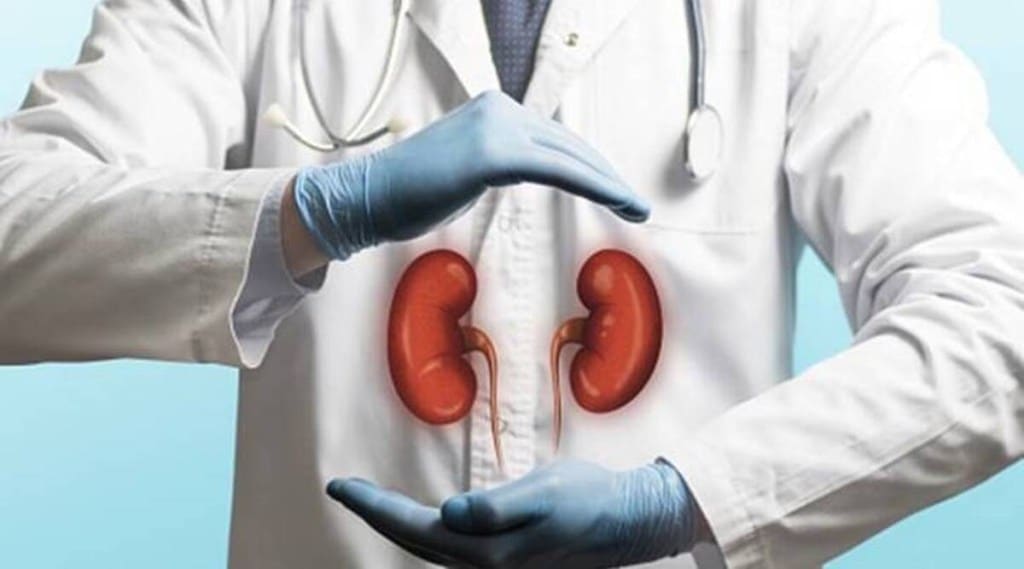By Dr. G K Prakash,
The kidney helps your body to eliminate toxins. The kidneys filter your blood and send waste out of your body through urine. If the kidney fails to function normally it can have an impact on life expectancy. There can be a condition where a person can have symptoms like poor vision in both eyes, Kidney Dysfunction, Obesity. One such disorder is the ‘Laurence-Moon-Biedl syndrome,’ an inherited genetic condition that affects approximately one in every 100,000 babies born. Both men and women are affected equally.
A similar case was seen at Manipal Hospital, Malleshwaram. Ms. ‘X’, who came 21 years ago with a history of poor vision in both eyes. On probing and evaluation, she was found to have severe Kidney Dysfunction, Obesity (overweight ???? 35 BM), and near-total blindness in both eyes because of pigment deposition in the eyes, known as Retinitis Pigmentosa. A diagnosis of a rare disease known as LMB (Laurence-Moon-Biedl Syndrome) was made based on the above-mentioned involvement of vision, obesity, and kidney dysfunction.
The options of treatment for kidney failure were discussed with the family, which included either lifelong dialysis or kidney transplantation. The family rightfully opted for the latter treatment, and she underwent kidney transplantation on 25/08/1999. The operation was a success. She did very well post-op with normal kidney functions. In the subsequent months, she was detected to have diabetes mellitus and hence was prescribed oral sugar medicines. Her diabetic state was adequately controlled. In the interim period despite good sugar control, she developed multiple episodes of urinary infection and thus had to receive antibiotics multiple times. Despite this course of action, she developed unremitting bouts of urinary infection and had to receive a suppressive course of antibiotics intermittently for many months.
A couple of months later she was found to be doing well, however, she came back with a bad fungal infection in the groin, mostly due to the abovementioned multiple co-existing ailments, drugs being consumed to prevent kidney rejection as well as poor hygiene of the area owing to her poor vision. These episodes of infection necessitated us to modify the drugs that were given to maintain normal kidney function to prevent rejection. She was now maintained on two drugs instead of three which are normally given to such patients in smaller doses. Following this, the kidney functions stayed normal, and she continued coming for regular check-ups.
One fine day in August 2021 (coincidentally this was the same month 21 years ago when she underwent transplantation) she came to the outpatient department with a feverish feeling and was noted to have markedly reduced blood counts (White Blood Cells, Hemoglobin Platelet counts). We thought that the culprit for this picture was the drug Azathioprine which is routinely given to kidney transplant patients. Therefore, we stopped this medication and gave her an injection that prevented further fall in her blood count. Consequently, her blood counts promptly increased and normalized in the next couple of days. But, to our surprise, she came back after three weeks with new symptoms of poor appetite, tiredness and passing darkish coloured urine. On evaluation via ultrasound, she was found to have abnormal liver parameters, enlargement of the spleen and changes in the liver. Thus, she was diagnosed to have a Chronic Liver Disease known as Non-alcoholic Fatty Liver Disease (NAFLD), an illness not related to any common viruses, obstructions or drug-induced injury. She was treated with appropriate medication and was advised to bring about changes in her lifestyle like dietary control, weight loss etc. She responded well to this treatment and is now stable with normal kidney functions.
There are currently no approved treatments for the disorder. Life expectancy for those with the LMBS syndrome is typically lower than that of the general population. The most common cause of death is renal or kidney disease. Regular timely follow ups with the doctor for the treatment has helped the patient surpass health conditions.
(The author is Senior Consultant – Nephrologist, Manipal Hospital, Malleshwaram. The article is for informational purposes only. Please consult medical experts and health professionals before starting any therapy, medication and/or remedy. Views expressed are personal and do not reflect the official position or policy of the Financial Express Online.)








